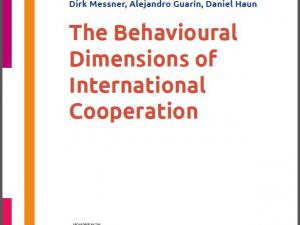Behavioural dimensions of international cooperation

International cooperation to tackle complex common resource problems like climate change is extremely difficult. Although there is broad agreement on the nature of the problem and what is required to solve it, many nations continue to block any meaningful action for solution. This global cooperation crisis is baffling in the light of recent evidence about the surprisingly cooperative disposition of human beings. Research from social and natural sciences points to an unmistakable conclusion: people cooperate all the time, and they enjoy doing so. This picture of human behaviour is at odds with common assumptions about people being narrowly—and exclusively—self-interested, and prompts the question that we address in this paper: why, if we are so good cooperating at interpersonal levels, is international cooperation so hard?
Log in with your EU Login account to post or comment on the platform.